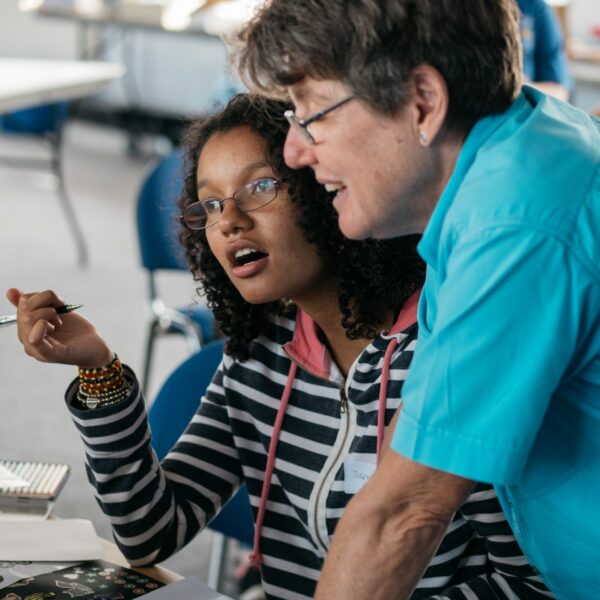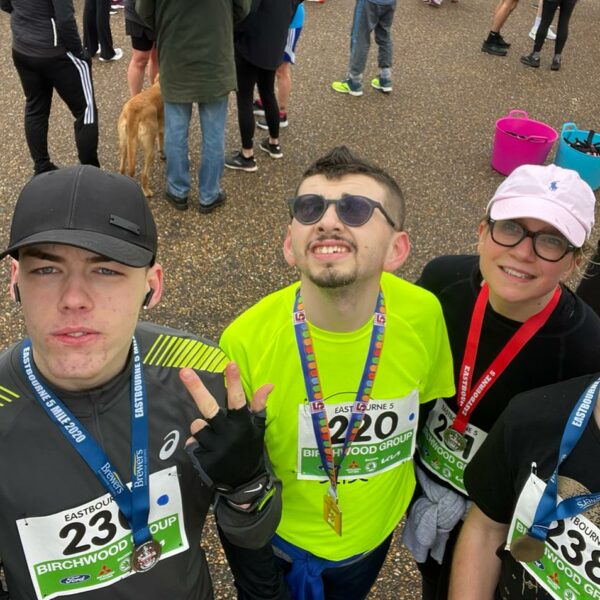Work and volunteering
After secondary school, there are lots of options available to young people with additional needs.
What are the options?
Your young person with SEND may choose:
- further education and training
- work and learning combinations
- supported volunteering and employment opportunities
In this section, we will look at work and volunteering.
If your young person wants to stay on in education or training, see our further education and training page.
When can young people start work?
Young people cannot work full time until they are 18, as this is the ‘minimum school leaving age’ in England. Therefore, when they are between the ages of 16-18, child employment laws state that they must either:
- stay in full-time education, for example at a college
- start an apprenticeship or a T level, or another work and learning combination
- spend 20 hours or more a week working or volunteering, while in part-time education or training
See more on this here School leaving age – GOV.UK (www.gov.uk)
Getting careers advice
Advice from Amaze
Young people aged 16-25 with SEND in Brighton & Hove can get support from our Amazing Futures Careers service to help them make the next steps in education, employment or training. They can meet with Dara, our Careers service coordinator, at the Youth Employment Hub (brighton-hove.gov.uk) where many services that can support young people are based.
Young people in East Sussex can also get careers support if they already attend our Amazing Futures groups.

Other sources of careers advice
Young people are entitled to receive careers advice during their secondary education from their school or college. This should include planning for next steps after leaving school and thinking about careers options.
If careers advice is not automatically offered by the school/college, or your young person needs further tailored support with this, you may need to ask for it. Independent careers advice is something that the government has said schools must provide to its students in its statutory guidance referring to Section 42A and section 45A of the Education Act 1997.
If your young person is looking for careers advice and they are still school age, they might be able to speak to an adviser from the National Careers Service or take one of their many ‘skills assessment’ quizzes which you can find here: Careers advice – job profiles, information and resources | National Careers Service.
If your young person aged 16-18 (or up to 25 if they have an EHCP) is not in education, employment or training (NEET), or is at risk of becoming NEET, they can get support from their local council’s Youth Employability Service. See:
- Brighton and Hove Youth Employability Service (brighton-hove.gov.uk)
- East Sussex CXK Services: Youth Employability Service
Brighton & Hove young people can also visit the Youth Employment Hub to access a range of different services and programmes: parent carers, support workers or friends are welcome to attend for support if needed. See more here: About the Youth Employment Hub (brighton-hove.gov.uk)
Volunteering
Volunteering is a great way to gain the skills, experience and confidence needed to find work for those over 16, though be aware that some types of volunteering may require your young person to be over 18.
Though the idea of volunteering can feel frustrating for some young people who want a paying job, it can help to view it as a ‘stepping stone’ to something else in the future or as a starting point to build the future they want. Having professional experience and references on a CV can make a dramatic difference to their chances of securing paid opportunities.
You can look on national and local databases like these ones for volunteering opportunities:
- Local to Brighton and East Sussex Volunteer posts Archive | Community Base
- National Do IT | Connecting people to do good things
Or, if you live in Brighton & Hove, you can book in an appointment with our Amazing Futures Careers service to work out whether volunteering is right for you and how it could help.
Supported internships
If your young person is aged 16-24 with an EHCP, a supported internship may help give them a kick start in their career.
Supported internships are all about helping to prepare young people with SEND for paid work, and this means they may focus on developing essential skills like teamwork and communication.
A supported internship has elements of learning but the majority of this will be done on the job or with a job coach, and it will ‘feel’ more like work than college.
A supported internship usually includes:
- an unpaid work placement of at least 6 months
- support from a qualified job coach
- a personalised study programme, including the chance to study a relevant qualification, if suitable, and English and maths to an appropriate level
You can see more here: Supported internships | National Careers Service
There are organisations in Sussex that can provide supported internships. See Supported internships | St. John’s College, The Centre – Team Domenica and What we do — Little Gate. In coming years, opportunities are likely to increase as funding into supported internships is increasing.
Supported employment
If your young person is over 18, has autism or a learning disability and wants to work, they might be eligible for help from the adult Supported Employment team. Supported Employment teams follow guidance and standards set by BASE (British Association for Supported Employment). BASE has a great page explaining supported employment principles.
Supported Employment helps young people with additional needs identify, find and sustain paid employment. It aims to do this by:
- understanding the young person’s needs and desires
- working closely with employers to identify and carve out job roles
- supporting them to maintain and develop their career
Supported Employment is not done in a set time frame. Each young person will require different levels of initial and ongoing support: some receive support for a few months, some for many years.
Find out more here:
- Brighton & Hove Supported employment (brighton-hove.gov.uk)
- East Sussex Supported Employment Pathways
Extra support to work with 'reasonable adjustments'
If your young person is already working and is finding it difficult, they may need more support at work: the law calls this ‘reasonable adjustments’. You can find out more about reasonable adjustments here:
- Asking your employer for changes to help you if you’re disabled – Citizens Advice
- Reasonable adjustments at work | Disability charity Scope UK
They may also be eligible for financial support from the government’s ‘Access to Work’ scheme while they are working. This grant can help with practical things like BSL interpreters or lip readers, adaptations to your vehicle or taxi rides to work.
If your young person is looking for support on identifying what their ‘reasonable adjustments’ might be and preparing for conversations with employers around their additional needs, they can contact our Amazing Futures Careers service for support if they live in Brighton & Hove. Young people who already attend our Amazing Futures groups in East Sussex can also access advice.






